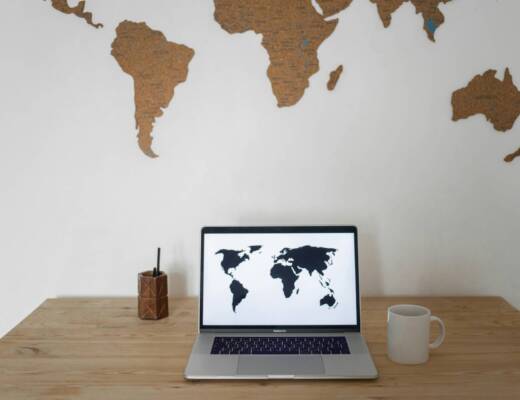Building a safe financial future is way more than just investing and saving for retirement. It’s also about making sure your assets are safe against unpredictable events. Creating a solid emergency fund is one of the most reliable solutions for such circumstances.
Now, you might be wondering what an emergency fund is. An emergency fund is a financial shield that can help you manage unexpected expenses without completely messing up your long-term goals or falling into debt. Everyone wants to avoid costs associated with a medical emergency or an unexpected home repair. A solid emergency reserve is, therefore, created to give you peace of mind and protect your valuable assets.
How They Help
Even though you might consider it a luxury, an emergency fund is a life necessity. It’s your best friend that shields you against various financial setbacks. It allows you to handle unexpected events without having to compromise your stability. The concept is pretty easy to comprehend: it’s about setting aside a portion of your income into an easy-to-use account that you’re supposed to use exclusively for emergencies. This fund should be your safety net covering three to six months’ living expenses.
Performing these steps ensures that in times of financial hardship, you have immediate access to funds without using any of your retirement savings or asking your family and friends for some cash. This also helps you avoid high-interest debt, whether in the form of credit cards or payday loans. Nobody wants to fall into debt, right?
An emergency fund can also prevent you from making rash financial decisions under pressure. For instance, losing your job could force you to sell some of your valuable assets. If those include stocks or property, you might lose a lot of money by selling during an unfavorable market period. That’s why having a dedicated reserve helps you control your financial future regardless of what might happen.
How to Start Building It
Building up an emergency fund may seem pretty daunting and complicated, especially if you’re already on a tight budget. However, the solution is to start with baby steps and stay consistent throughout the entire process. Begin by determining exactly how much you need to set aside. One of the best advice is to aim for enough to cover three to six months of your essential expenses. That might include your rent, food, utilities, and even transportation.
Once you decide on the exact amount, you need to break it into monthly contributions to see how much you’ll have every month. Automating these savings can visibly ease that process since the money will be automatically transferred to your emergency fund every month. That’s also amazing because it minimizes the temptation to spend it elsewhere.
Start with a small goal and build from there. It can be anywhere from $500. As you achieve these smaller milestones, you’ll gain some more confidence in your ability to save. Tax refunds, bonuses, or monetary gifts can boost your emergency fund quickly.
The Best Place to Keep It
Where you keep your emergency fund is just as important as having one. The best place for an emergency fund is typically a highly liquid account that allows quick access to your money. This means avoiding investments that might require selling assets or incurring fees.
A high-yield savings account is one of the best choices because it balances accessibility and earning potential. You can also consider money market accounts or short-term certificates of deposit (CDs) for portions of your fund. That’s particularly a good idea if you’re looking for slightly higher returns but want to keep the bulk in a highly liquid form.
Checking accounts can also play a role here. They provide immediate access to your funds, which can be particularly beneficial if you need cash quickly. For example, opening a checking account online with no deposit can be a great move for those who want to start building their emergency fund without any upfront costs. This type of account allows you to begin saving immediately, ensuring you have a foundation for your emergency savings.
All in all, it’s crucial to avoid using the funds in this account for daily expenses. Keep in mind that your emergency fund should always be separated from your regular spending account. Doing that helps maintain discipline and prevents the temptation to spend your emergency money on things you don’t even need.
Maintaining and Growing It
Building an emergency fund is not a one-time task because it requires ongoing maintenance and occasional adjustments. You should reassess and adjust it accordingly each time your financial situation changes. That might include getting a pay raise or experiencing increased living costs.
Reviewing your fund helps ensure it remains exactly what you need. Sometimes, that might mean increasing your contributions or changing some of your savings reallocations to better suit your current circumstances.
Another essential factor is remembering that your emergency fund is only for emergencies. While using the money for a vacation or a luxury purchase can always be tempting, doing so can leave you vulnerable if a real emergency arises. That’s why having a separate savings account for non-essential purchases is wiser.
Additionally, it would help if you considered ways to grow your emergency fund over time. While the primary goal is liquidity, earning some interest doesn’t hurt. It would help if you kept your emergency savings in a high-yield or money market account that can help it grow. Remember, the purpose of an emergency fund is not to generate significant returns but to provide financial security and peace of mind.
The Psychological Benefits
Beyond the tangible financial advantages, having an emergency fund can also bring some significant psychological benefits. Knowing that you have a financial cushion can reduce stress and anxiety, especially when you tend to stress over everything.
This peace of mind allows you to focus on other, more relevant areas of your life. It will enable you to focus on career advancement and your loved ones without worrying about what might happen if an unexpected expense arises.
An emergency fund also empowers you to make more calculated financial decisions. For example, it can provide the security needed if you’re considering a career change or starting your own business and don’t know what to do until things start moving. It can act as self-insurance to give you the confidence to explore new opportunities without the fear of being financially ruined.
Conclusion
An emergency fund is an essential component of any solid financial plan. It protects your assets, shields you during tough times, and allows you to overcome financial challenges confidently. Understanding the importance of an emergency fund and choosing where to keep it helps you ensure that your financial future remains secure. Even though the initial effort seems like too much work, the long-term benefits make it worth it. These steps today can safeguard your tomorrow, so why not start now?







